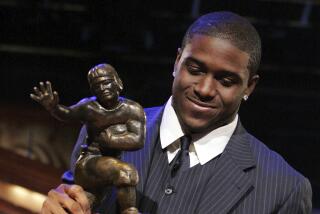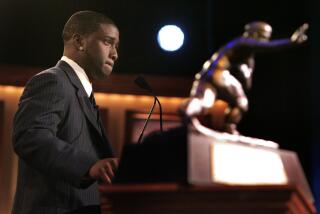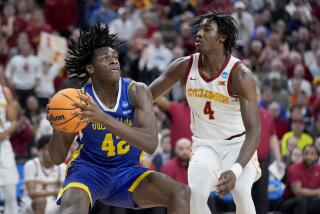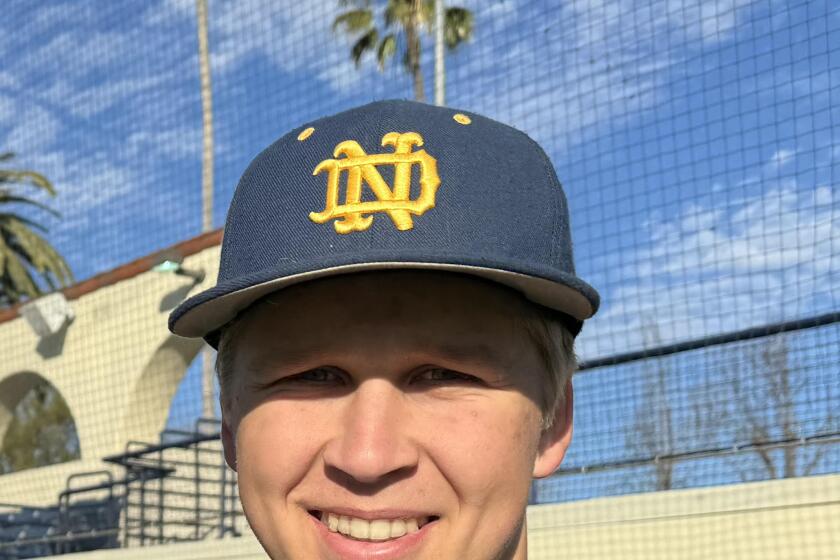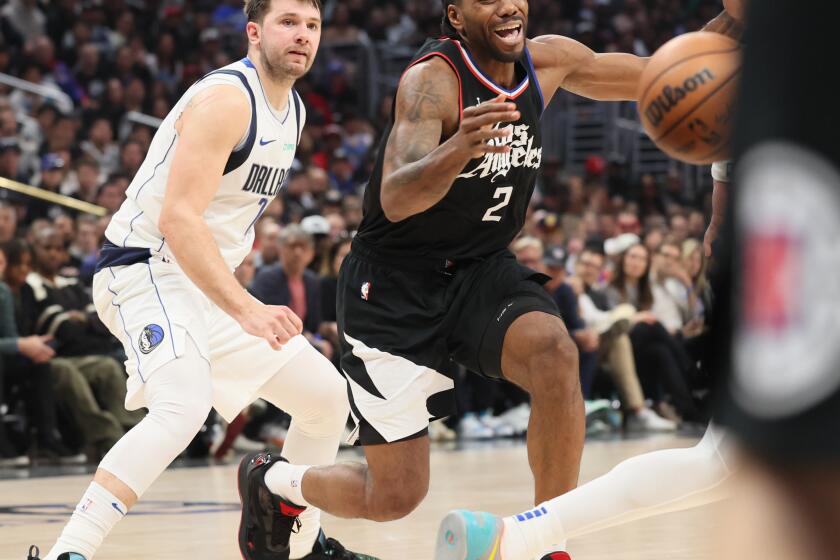Raiders’ Al Davis, sport’s ultimate bad guy, will be missed
Al Davis is dead? It can’t be true.
I know the Oakland Raiders confirmed it Saturday morning, but you know how Davis loved to deceive, so anything is possible.
It would not be surprising to see him show up Sunday in Houston, glaring down at his raucous team from behind press-box glass, wringing his bony hands, tightening his taut jaw, the emperor of black football and white satin.
Or maybe he will just appear next week in Oakland, shuffling in front of a camera to fire an offensive coordinator, sign a renegade quarterback or simply rip Lane Kiffin again.
At the end of his lifetime pursuit of intimidation, Al Davis won, because he made us believe he would outlive all those who questioned his style or his sanity or the “greatness of the Raid-duz.”
Al Davis won because, after absorbing the NFL’s best shots across his beady grimace for 60 years, he finally convinced us he was immortal.
It is frankly a bit unsettling today to realize that he was not.
It turns out even a Commitment to Excellence doesn’t last, and it is not enough to just win, baby.
Al Davis died Saturday at his Oakland home at the age of 82, and the NFL is far less interesting because of it.
He was probably the greatest villain in the history of American sports, universally feared but absolutely necessary. For the games to matter, there has to be drama, and every drama has to have a bad guy, and that became the role of Al Davis’ life.
Sometimes he played it well: He was the AFL commissioner who annoyed the NFL into a merger, the first step in turning pro football into our national pastime. He was the Raiders owner who won three Super Bowl championships by fashioning a team that played as relentlessly — and recklessly — as the pirate football player on their helmet would imply.
Other times, he played it like a bully: He conned the city of Oakland. He conned the city of Los Angeles. He sued anyone who stood in his way. He ruined the end of Marcus Allen’s career with the Raiders because of a grudge. He fired Kiffin in front of the media on an overhead projector.
Sometimes his vision was courageous and brilliant: He hired the modern NFL’s first black coach in Art Shell, its first Latino coach in Tom Flores, and its first female chief executive in Amy Trask.
Other times, his vision was mean and nasty: When the Raiders played in Los Angeles between 1982 and 1994, they used what was formerly El Segundo Middle School as their headquarters. When they left town, the place had been trashed so badly, millions of dollars from a bond issue were required to bring it up to code and turn it back into a school. Neighbors throughout the town openly celebrated the departure of an organization steeped in arrogance and deceit.
Think about this. Al Davis is the only owner to bring a Super Bowl championship to Los Angeles, yet he died as one of the most reviled owners in the city’s history.
In June 1995, I attended the Hollywood Park news conference in which the NFL, Inglewood and racetrack officials were going to announce a deal to build a stadium for Davis on that site. The water had already been poured into the glasses on the empty dais when the announcement suddenly changed. Davis decided he needed another $10 million, so the deal was off, and soon the team moved to Oakland.
I was glad they were gone. I was glad Al Davis was gone. Watching the Raiders at the Coliseum, with the nightmarish tailgate parties and constant threat of fist fights in the stands, was no fun. Covering the Raiders, with front office employees who constantly attempted to bully the media the way Davis bullied them, was a terrible assignment.
More than once, Davis would tug on my shirt sleeves and accuse me of attempting to undermine his team. The only time he ever smiled at me was when he uttered a truth that seemed to make him happy.
“I know you don’t like me, Plaschke,” he said, grinning. “That’s OK. That’s OK.”
He would rather be feared than loved, fought than embraced, and you’ll probably notice that in the wake of his death, every nice thing said about Al Davis will come from former Raiders. He took care of his own, and the heck with the rest of us.
In the end, this intimidation changed a league, broke down barriers and created a unique sports culture, a group simply known as Raider Fan. This is a name given to any of thousands of spectators — many from Los Angeles — who embrace the sort of havoc in the stands that Davis’ team attempts on the field.
What will happen to Raider Fan now? What if Davis’ heirs sell the team to someone who will attempt to move them back to Los Angeles’ new NFL stadium?
For that to happen, the team must first change the silver and black colors that are so popular among gang members. And second, well, they might as well change the name.
Without Al Davis, the Raiders could become an attractive mainstream property that would be easily embraced here. But without Al Davis, the Raiders will never again be the Raiders.
twitter.com/billplaschke
More to Read
Get our high school sports newsletter
Prep Rally is devoted to the SoCal high school sports experience, bringing you scores, stories and a behind-the-scenes look at what makes prep sports so popular.
You may occasionally receive promotional content from the Los Angeles Times.
